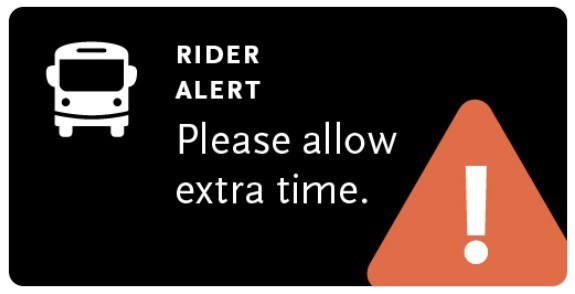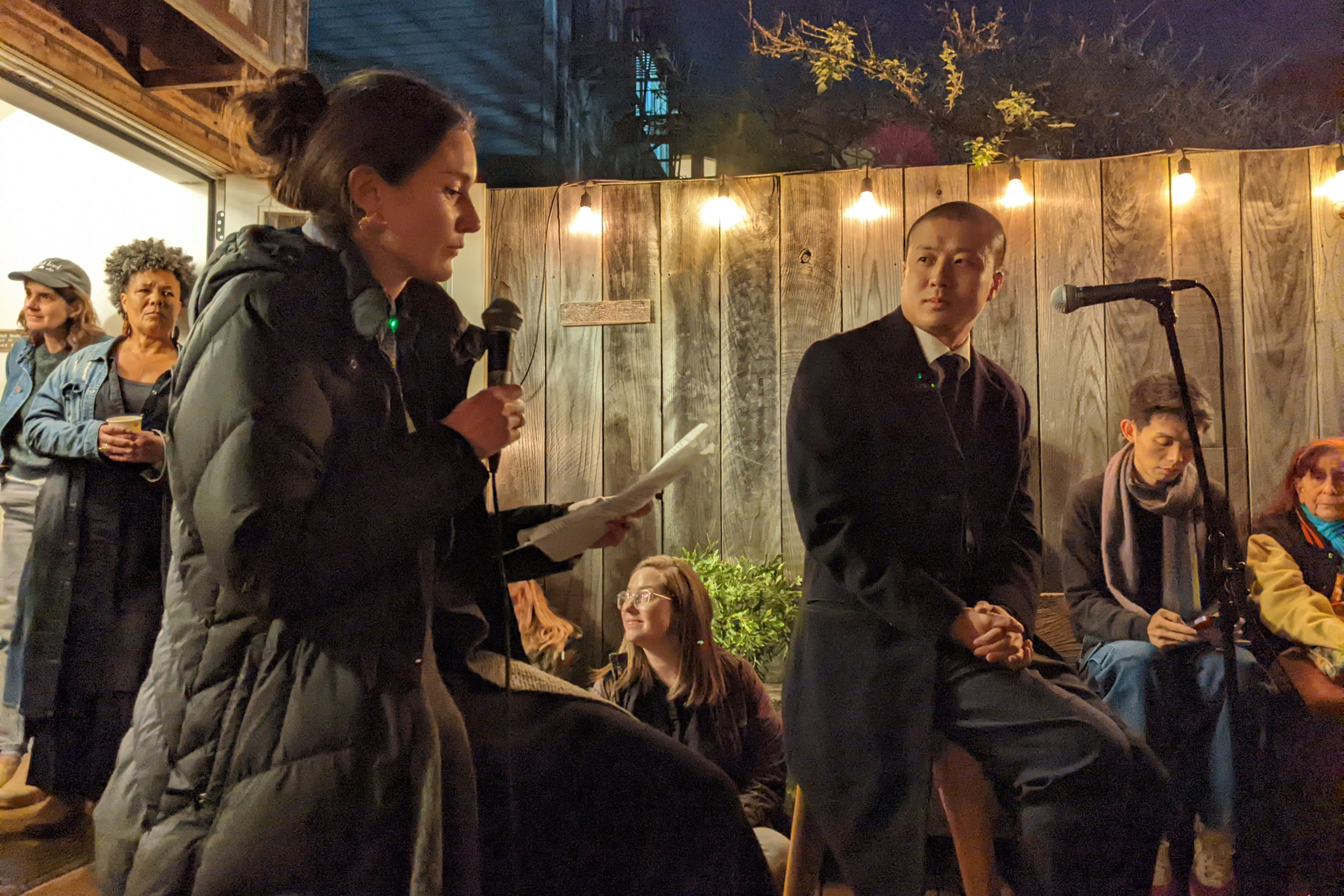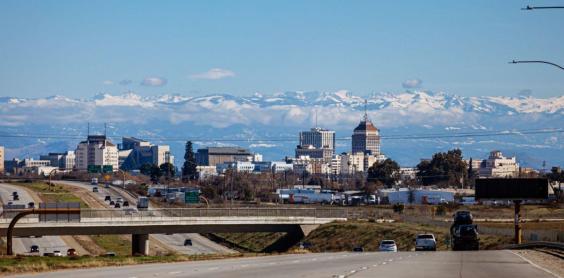Last Saturday night, Metro announced just after 6:30 p.m. that all transit would be suspended at 8 p.m. The shutdown, well covered by the L.A. Times, was a response to widespread protests on L.A. streets.
Triggered by the Minneapolis police killing of George Floyd, Black Lives Matter anti-police brutality protests had taken place in downtown Los Angeles streets for several days. On Saturday, they expanded from downtown into mid-city. The city of Los Angeles declared an 8 p.m. curfew, initially applying it downtown, then for the entire city.
That afternoon, a Metro bus had been caught in a crowd of protesters on 3rd Street. Protesters graffitied the vehicle. Some were photographed standing on top of it.
Metro's response felt disproportionate to the situation. A damaged bus caught in a demonstration does not warrant the whole Metro system shutting down, stranding essential workers throughout the county. Disruptions in the central mid-city locations should not result in service suspension in the San Fernando and San Gabriel Valleys.
Not only did Metro fail to serve its riders, but its buses were used by the police to transport detained protesters.
LAPD officers load arrested protestors into an L.A. Metro bus.
— LAist (@LAist) May 31, 2020
Photo by @StoltzeFrankly pic.twitter.com/GcUJQqsKxY
Metro's support of the LAPD stands in contrast to other cities - including Minneapolis, New York City, Philadelphia, Miami, San Francisco, Cincinnati, and Dallas - where bus drivers refused to transport arrestees.
The Alliance for Community Transit, Investing in Place, and Los Angeles Walks issued a joint statement calling Metro's suspension "unacceptable" as the agency was "turning its back on those who rely on the bus and train without warning and without accountability." The statement decried leaving "vulnerable community members and essential workers... stranded [while instead using buses] to transport protesters to jail... was outrageous." According to the L.A. Times, L.A. City Councilmember and Metro Boardmember Mike Bonin called the suspension "unconscionable."
According to the initial Metro suspension announcement, the decision was made by Metro CEO Phil Washington "In consultation with Metro Board Chair James T. Butts and in response to L.A. Mayor Garcetti’s [curfew] directive." Currently the mayor of Inglewood, Butts is a former police chief who takes a great deal more interest in transit policing than transit services.
Metro justified its suspension "to ensure the safety of both the public and L.A. Metro employees." This is undermined by the agency's decision send drivers out to ferry police detainees.
The decision was taken out of concern for the public & drivers, but mainly, it appears, for the damage done to that single bus. No word on how the drivers sent back out onto the streets later that night were protected from such a dire threat. https://t.co/Z7zvBpW9KP
— sahra (@sahrasulaiman) May 31, 2020
On Sunday morning, Metro issued an apology and offered to reimburse riders for taxi or ride-hail expenses. When protests continued on Sunday, the agency committed to keeping transit running, though with detours where needed.
Monday evening, the agency dug in a bit deeper with a post at The Source calling Metro's choice to side with LAPD over its largely black and brown riders, an "unintentional coincidence" with "unfortunate optics." The problem here is not optics.
It is an unfortunate and unintentional coincidence that service suspension occurred at the same time local law enforcement requested our agency to provide eight Metro buses to transport detainees that night. Metro is required by law to provide mutual aid in times of emergencies.
We recognize the incongruent and unfortunate optics of this situation — taking transit services away from riders while providing our equipment for other purposes. We were asked to provide six buses tonight and we did so.
The post confesses that the agency is still providing buses to LAPD, asserting that Metro is "required by law" to do this. Comments and many tweets have questioned what law Metro is citing here. Others have asked for agency transparency on how these requests are made and approved. As this article was going to press, Metro responded that the law in question was the California Disaster and Civil Defense Master Mutual Aid Agreement, approved by the Metro board in 2011. Update added 6/3: This state disaster law includes provisions that, in the event of a disaster, the governor can order state agencies to respond. (Though its jurisdiction is L.A. County, Metro is technically a state agency.) Further, "State agencies may provide mutual aid, including personnel, equipment, and other available resources, to assist political subdivisions during a local emergency or in accordance with mutual aid agreements or at the direction of the Governor." (italics added) Metro is mischaracterizing this as "required by law."
We need a breakdown too where the requests came from and who approved it. https://t.co/4WyKk5kR1r
— Investing in Place (@InvestinPlace) June 2, 2020
Metro's CEO Washington often speaks about the agency stepping up to fill leadership voids on issues - including providing services for unhoused people. What roles might Metro be stepping up to at a time when police are killing unarmed Black men and women?
The obvious first step would be for Metro to stop allowing LAPD the use of its buses and drivers.
If the board is unwilling to take this step, the drivers union might.
One transportation equity leader, Dr. Destiny Thomas, is urging transit agencies to redirect resources from policing to other alternatives "like resource navigators and social workers."
Now would be a great time for transit agencies to defund police and take up alternatives like resource navigators and social workers. Do this while rates are reduced and ridership is down. Then scale up. Keep that same open streets energy 🙄
— Dr. Destiny Deguzman (nee Thomas) (@DrDesThePlanner) May 28, 2020
The Metro system is currently policed under a ~$130 million/year multi-agency contract, with the lion's share of monies paying LAPD. The contract also funds L.A. County Sheriffs (LASD) and Long Beach Police Department to police portions of the system.
All three of these agencies have blemished records in policing communities of color - both on and off of transit.
LASD has a history of criminalizing low-income riders of color, especially in policing the Metro Blue Line. Data made public in 2016 showed that African Americans were nearly 60 percent of LASD arrests, though they comprise only 19 percent of rail ridership.
One viral example of LAPD over-policing was the 2018 incident when an LAPD officer enforced Metro's no-feet-on-seats rule by dragging a rider off of a subway train. In this case, Mayor Butts sided with the officer against the rider, who Butts called a "brat."
The Metro board has taken small steps to de-criminalize fare evasion, but continues to fund problematic law enforcement agencies. In the light of this week's service suspension and ongoing LAPD arrestee transport services, Metro needs to take a serious look at its ties to LAPD, LASD, and LBPD.






